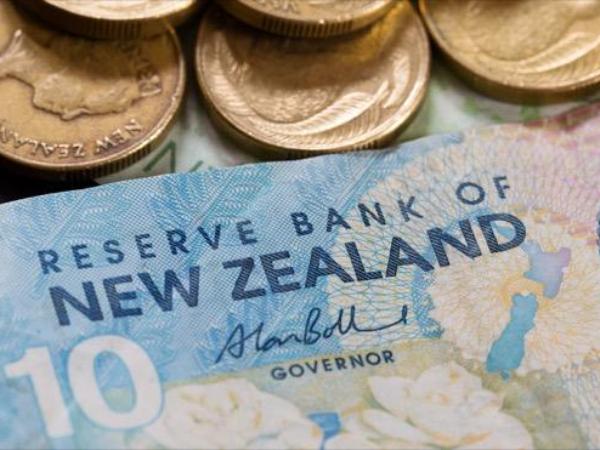How might diverging approaches to the housing market affect AUD/NZD?
Australia's Reserve Bank is continuing with quantitative easing and rock-bottom interest rates, while New Zealand is tightening up fiscal policy. With house prices skyrocketing in both countries, what could happen to AUD/NZD?

Source: Bloomberg
There’s a chasm between Australia’s and New Zealand’s economic policies right now. Currently, 67% of IG clients are long on the AUD/NZD pair, with 1 AUD currently buying 1.05 NZD. But there’s no guarantee that the Australian dollar will strengthen anytime soon.
AUD: rising inflation
In November’s Statement of Monetary Policy, the Reserve Bank of Australia said that the ‘latest data and forecasts do not warrant an increase in the cash rate in 2022,’ instead forecasting that ‘an increase in the cash rate in 2023 could be warranted,’ if inflation and wage growth are ‘materially higher than they are at present.’ Moreover, it will continue to purchase government bonds until at least February 2022, at a pace of $4 billion a week. It’s already bought up $315 billion of bonds since March 2020.
The report continued that ‘about two-thirds of the quarterly increase in the Consumer Price Index (CPI) was accounted for by sharp rises in two components: fuel prices and home-building costs.’ Increased construction costs were partially blamed on global material price increases — for example, timber is up 64% since July 2020 — but it also blamed demand created by the government’s Homebuilder subsidy.
Accoring to CoreLogic, average house prices are up 18.4% in the year to September to $994,579, with prices rising by more than 30% in 45 regional areas. But because GDP shrank by 3% in September, Reserve Bank Governor Philip Lowe has said there is a ‘very low probability’ that rates will rise as it could stifle the economy further.
As a result, the average mortgage rate is about 2.3% – 0.7 percentage points below inflation, which is likely to continue to rise. The Commonwealth Bank of Australia has predicted an 8% house price rise in 2022, before a 10% fall the year after. A forced rate rise at the wrong time could spell disaster for Australia’s housing market, AUD, and its economy as a whole.

Source: Bloomberg
New Zealand: rising interest rates
Figures from the Real Estate Institute show that average house prices rose 31% over the year to July, to a record $937,000. Back in March, PM Jacinda Arden brought in new measures to cool the market, saying that ‘the last thing our economy and homeowners need is a dangerous housing bubble.’
The income cap on government-backed First Home Grants was lifted from $85,000 to $95,000 for single buyers, and from $130,000 to $150,000 for couples. The holding time for investment properties to qualify for tax offsets was raised from five to 10 years, and investors were banned from offsetting interest expenses against rental income. Finance Minister Grant Robertson said that ‘we cannot afford to put the current economic recovery at risk by allowing house prices to spiral out of control,’ and announced $3.8 billion to speed up new build construction.
And like its brother across the Tasman sea the Reserve Bank of New Zealand has also bought $53.5 billion of government bonds. However, unlike Australia, it ended the program on 23 July.
But house prices continued to skyrocket. As inflation hit 4.9% in November, New Zealand's Reserve Bank raised the base interest rate to 0.75%, its second hike in as many months. It expects rates to rise to 2% by the end of 2023, with further increases possible in 2024. Eventually, it hopes the rising cost of monthly mortgage repayments will bring house prices back down.
New Zealand has raised its base rate and stopped buying government bonds. Australia is continuing with its quantitative easing program and keeping its rate at rock-bottom. New Zealand might see its economic recovery falter, while Australia risks fuelling inflation and a housing market collapse.
Meanwhile, the Evergrande threat from China still looms large. With £223 billion of debt, the potential collapse of the mammoth real estate developer could hit both Australia and New Zealand with destructive third-order contagion. 30% of China’s GDP is related to the housing market but average prices in the country fell 0.2% in October.
The long-term impact on AUD/NZD depends on which domino falls first.
Trade 100+ FX pairs with the UK’s No. 1 retail forex provider.* Enjoy fast execution, low spreads – plus we’ll never fill your order at a worse price. Learn more about our forex trading platform or create an account to start trading today.
Charles Archer | Financial Writer, London
01 December 2021


.jpeg.98f0cfe51803b4af23bc6b06b29ba6ff.jpeg)
0 Comments
Recommended Comments
There are no comments to display.
Create an account or sign in to comment
You need to be a member in order to leave a comment
Create an account
Sign up for a new account in our community. It's easy!
Register a new accountSign in
Already have an account? Sign in here.
Sign In Now